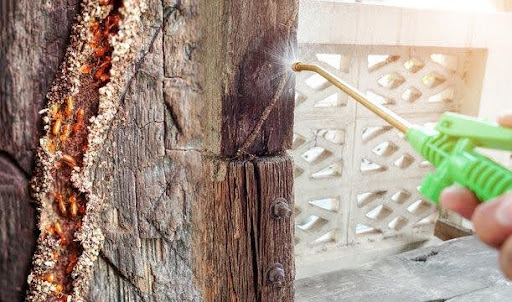In modern homes and buildings, hygienic, pest-free condition of homes and buildings is crucial to protecting the structural integrity and health of the population. Termite infestations and flies are among the most widely present threats that can lead to significant damage and increase the chances of spreading disease. Effective measures to control pests and termite control against flies should also be put in place, especially in areas such as Sharjah, where the climatic conditions are conducive to pest breeding. Pest management is not only effective in saving property values but also saves on the cumulative living and working conditions, as repeat infestation is prevented.
1.Risks of termite infestation
Termites are underground or dry wood insects which eat cellulose-based materials, including wooden buildings and furniture. Properties may sustain serious structural damage in the long run without proper termite control. Gaps in the walls, uneven floors, and hollowed-out timber are widespread signs of energized termite nests. These invasions can remain unnoticed until substantial damage has been done, thus leading to repair work, which is expensive. Additionally, termite droppings and mandatory granules may reduce indoor air quality and result in moisture issues inside building walls. Thus, early detection and frequent monitoring are essential to avoid such extremes.
2.Termite control strategies in Sharjah
Sharjah has a hot and arid climate that is conducive to the survival of termites. Focus on regional conditions. Dominant regional practices in local termite control Sharjah focus on preventive and remedial practices. Application of termiticides in the soil around the building forms a chemical boundary that prevents subterranean termites. In case of preexisting infestations, local baiting systems could be introduced to draw and eliminate the colonial infections at their origin. Wood treatment with borate-based preservatives also increases resistance to termite attack. Periodic structural surveys of skilled technicians will help guarantee that possible ingress areas, e.g. foundation cracks or poorly closed utility conduits, are discovered and sealed early in the game, ensuring greater defence over a long period of time.
3.Controlling flies: Prevention and significance
Contrary to termites, flies are a source of public health concern, being mechanical vectors of pathogens. Common pests such as house flies and fruit flies can carry bacteria and viruses that have come in contact with a contaminated surface and move them onto the food or other utensils, causing gastrointestinal diseases. The best ways to control flies include a mixture of sanitation, physical barriers, and direct insecticide application. Clean waste disposal and covering of food storage prevent attractants. Adult flies can be trapped using insect light traps and sticky tapes, which minimize their breeding population. In more extensive infestations, it is possible to use residual sprays with approved active substances on the resting locations, as they will have a long-lasting effect without lingering within treated areas too long.
4.Advantages of professional integrated pest management
Though do-it-yourself might be a quick fix, professional services such as integrated pest management (IPM) deliver all-inclusive and long-lasting results. Integrated pest management (IPM) employs biological, cultural, mechanical and chemical methodologies in a coordinated manner. A continuation of this in the case of termite control in Sharjah, the professionals would carry out detailed site audits, prepare a customized treatment strategy and arrange regular follow-ups to see the results. When it comes to flies, structural adaptations can be advised by the experts to avoid ingress, like installing door sweeps and mesh screens, in combination with environmentally friendly control products, to handle them. Having a multitude of techniques in play contributes to reducing exposure to harsh chemicals, restricts the impact on the environment, and ensures that the job is done within the framework of local laws that control the application of pesticides.
Conclusion
A productive and secure environment demands prompt action to ongoing infestations of insects like termites and flies. Controlling termites is important to facilitate the certification of buildings as structurally sound, particularly in areas with increased risk of termite invasion, such as Sharjah. Similarly, pest control for flies is required to avoid disease transmission and safeguard public health. The long-term protection can be achieved by adopting a combination of prevention strategies, specific measures, and professional integrated pest management services by the property owners. At the end of the day, a good pest control strategy enhances the strength of buildings, enhances the health of the communities and keeps real estate profitable.


